Understanding the Full House in Poker: Definition, Value, and Strategy
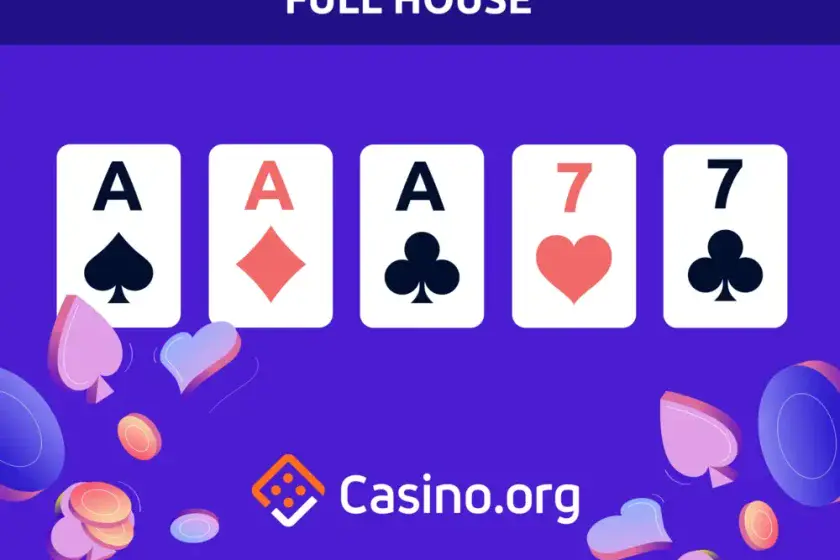
What You’ll Discover About the Full House in Poker
When it comes to poker, drawing a premium hand such as a full house gives you a real edge at the table. This comprehensive guide explores what a full house is, analyzes its rank among poker hands, shares notable full house showdowns from major events, dives into rare losing scenarios, and provides practical advice for making the most of this powerful hand.
- Learn exactly what comprises a full house and why it’s considered one of the most dominant hands.
- See real examples and pivotal moments in poker history involving full house hands.
- Understand the precise hand hierarchy, and what hands can beat a full house.
- Gain strategic tips on optimizing your play and maximizing value when you hit a full house.
- Recognize rare situations where your full house could lose to an even higher-ranking hand.
What Is a Full House in Poker?
A full house in poker consists of any three cards of the same rank paired with two cards of another rank, for example, A♠A♣A♦Q♦Q♥. This makes up a five-card hand with three-of-a-kind and a separate pair. The strength of a full house often means players holding it are in a strong position to win the pot. However, careful play remains crucial, as opponents spotting a possible full house may fold before you extract maximum chips.
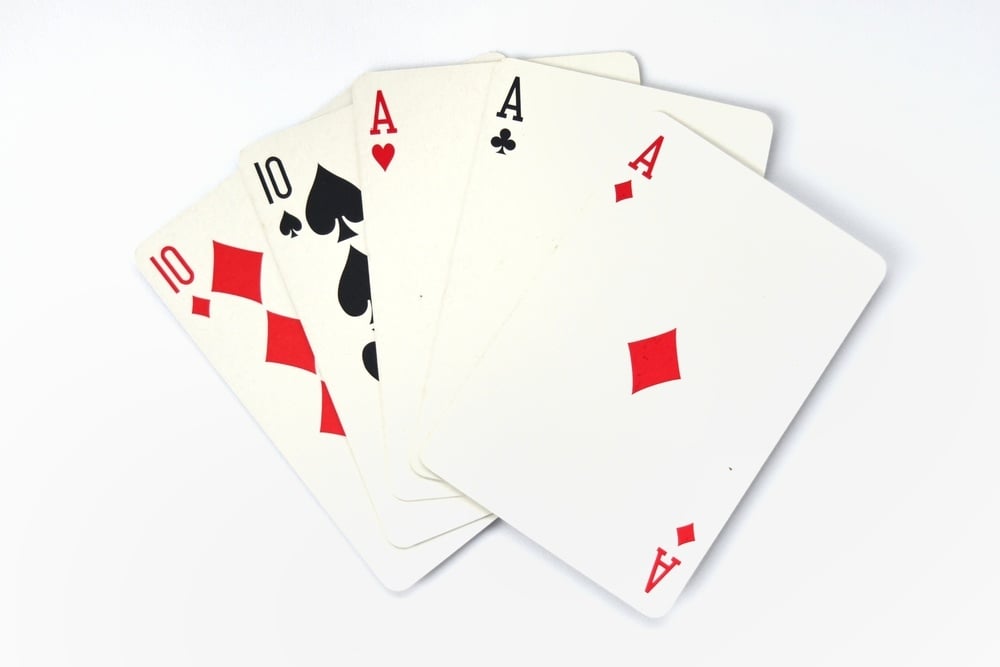
Image Credit: VITALII BORKOVSKYI/Shutterstock
The Full House in the Poker Hand Rankings
Knowing where a full house sits in the official poker hand hierarchy is vital for making confident decisions at the table. Here are the principal poker hand categories, listed from highest to lowest:
- Royal Flush: Sequential A-K-Q-J-10, all of one suit (e.g. A♠K♠Q♠J♠10♠). This is the highest possible hand.
- Straight Flush: Any five cards in consecutive order, all of the same suit (e.g. 7♣8♣9♣10♣J♣).
- Four of a Kind: Four cards of identical rank (e.g. 10♣10♥10♦10♠).
- Full House: Three cards of one rank and two cards of another (e.g. 10♠10♣10♥3♠3♣).
- Flush: Any five cards of the same suit, not in sequence (e.g. A♥Q♥10♥8♥3♥).
- Straight: Five cards in numerical sequence but not all the same suit (e.g. 6♠7♠8♦9♣10♥).
- Three of a Kind: Three cards of the same rank (e.g. K♠K♣K♥).
- Two Pair: Two different pairs (e.g. K♠K♣8♥8♣).
- Pair: Two cards of matching rank (e.g. 9♦9♣).
- High Card: None of the above; the highest card plays (e.g. A♦Q♦10♠9♦4♥).
A full house is usually only vulnerable to four of a kind, straight flush, and the rare royal flush. Although it’s a strong hand, be aware that, on occasion, even a full house can be beaten.
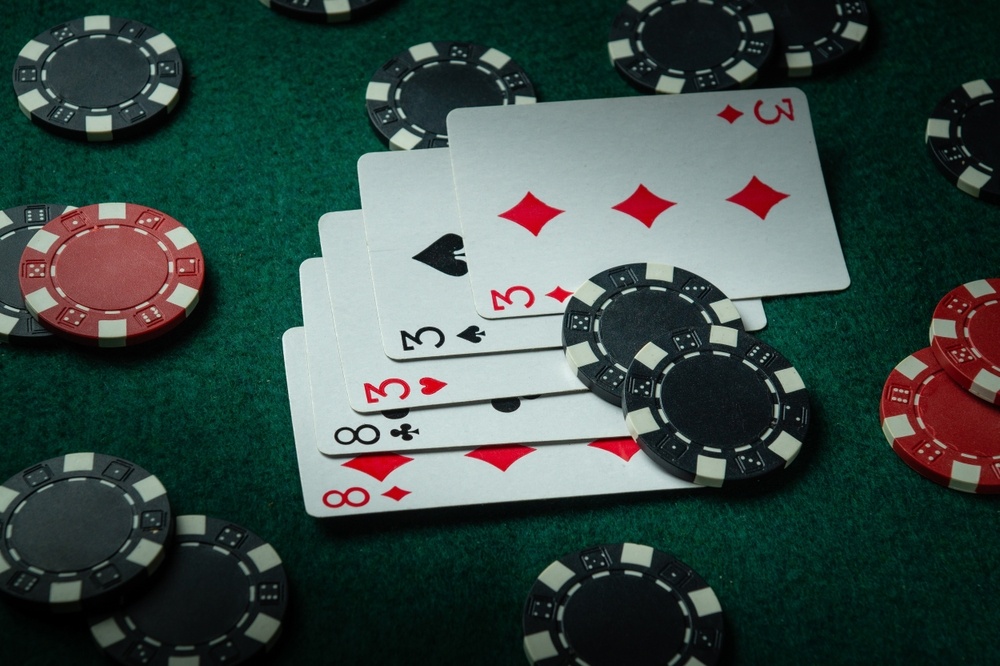
Image Credit: VITALII BORKOVSKYI/Shutterstock
How Often Do Full Houses Occur in Poker?
Full houses are relatively uncommon, making them especially valuable. Let’s examine the odds for different poker formats:
Chances of a Full House in Texas Hold’em
- Flopping a full house with any random starting hand: 0.14%
- Flopping a full house with an unpaired hand: 0.09%
- Flopping a full house with a pocket pair: 0.98%
- If two pair appears on the flop, there’s an 8.5% shot of completing a full house on the turn, and an 8.7% chance on the river-yielding a combined 16.5% chance.
- Flopping a set (three-of-a-kind with pocket pair): 15% chance to make a full house on the turn, 21.7% chance by the river (overall 33.4% by river).
While these probabilities are low, when you do connect, the payout potential is substantial-unless fortune turns and an opponent completes a winning straight, flush, or higher full house.
Likelihood in Omaha Poker
- Odds of making a full house in Omaha: 0.14%
- Chance of full house on flop (if holding three-of-a-kind): 0.65%
- Chance by the turn: 13.33%
- Chance by the river: 20.45%
Odds for Seven Card Stud
- Probability of making a full house by the seventh card: 2.6%
- Since players use only their own cards (not community cards), a full house is generally even stronger in this format.
Full House Frequency in Five Card Draw
- Being initially dealt a full house in your first five cards: 0.144%
- While your chances may improve if you draw, this is an extremely tough hand to start with since you’re limited to your five cards and have no community cards to help.
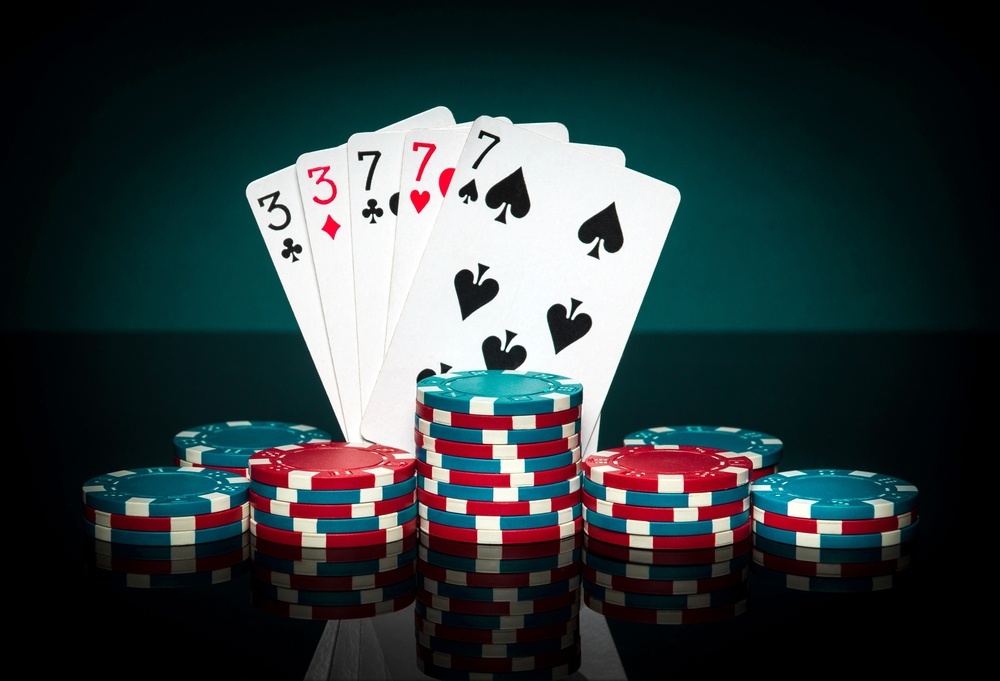
Image Credit: VITALII BORKOVSKYI/Shutterstock
Maximizing Value: Playing a Full House Effectively
Securing a full house gives you a prime opportunity to stack your opponents-if played smartly. Here are key strategy pointers:
- In limit games like Seven Card Stud, consistent betting can extract value if you suspect opponents can call.
- Mixing in occasional checks can induce bets from others by concealing the strength of your hand.
- Sometimes, slow-play (checking or betting exceptionally small) can keep players in the pot, ensuring they don’t fold to aggressive betting.
- Always be alert to the board texture: if the board suggests straights or flushes are possible, gauge bet sizes to keep others involved without scaring them away.
- Watch for hands that could beat your full house, and recognize when to play cautiously.
Full House Dynamics in Texas Hold’em
In Texas Hold’em, a full house nearly always puts you in a dominating position. For instance, a big pocket pair that improves to three-of-a-kind on the flop can turn into a full house by the turn or river. The trick is to keep other players interested:
- If only a few opponents remain, consider checking to hide your true strength-enticing someone to bet and thereby build a larger pot.
- Be mindful of “nut flush” or straight possibilities on coordinated boards.
- Overbetting can push opponents out prematurely, so calibrate your wagers to lure in maximum action.
When Two Players Both Have a Full House
It’s rare, but sometimes multiple players complete full houses in a single hand. Here’s how to determine the winner:
Suppose one player holds pocket 5s, and the board comes A♦A♣5♦. He has a full house (fives full of aces). If an opponent holds A-K and the board develops further to 10♠, 10♥, that opponent ends with tens full of aces-a higher ranking full house.
Rules for breaking ties:
- The full house with the higher three-of-a-kind wins (e.g. 10-10-10-A-A beats 5-5-5-A-A).
- If both players share the same three-of-a-kind, the higher pair takes the pot.
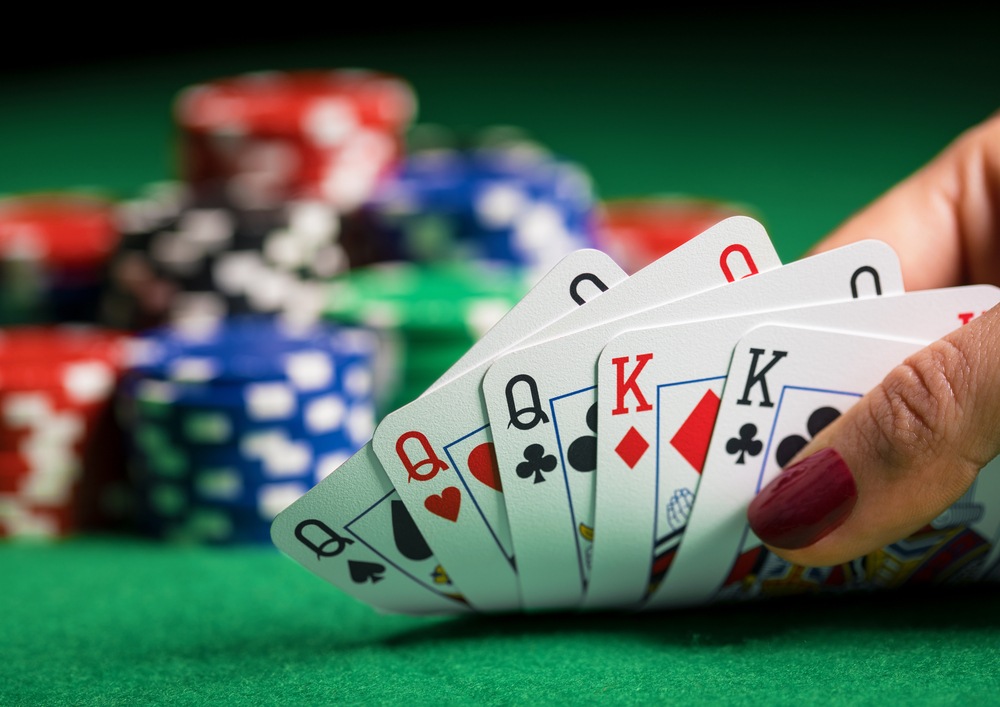
Image Credit: ARNIK PRATAMA/Shutterstock
Legendary Poker Moments: Full Houses in the Spotlight
Full houses have played starring roles in some of poker’s most intense moments. A notable example from the 2010 World Series of Poker Main Event final table saw Michael Mizrachi’s AdQd versus Matthew Jarvis’s 9h9c. After the flop brought Qs8dQc, Jarvis hit a full house when the 9s landed on the turn. But the As on the river delivered Mizrachi an even higher full house-sealing Jarvis’s fate and sending him to the rail.
Live-streamed cash games have also featured epic full house-over-full house battles, with pots soaring north of $70,000. These situations, though rare, emphasize the importance of maximizing value and recognizing when your full house may not be the best.
Full House in Summary: Key Facts and Takeaways
A full house-three cards of one value combined with a pair of another-remains one of poker’s most coveted hands, whether you’re playing Texas Hold’em, Omaha, Seven Card Stud, or Five Card Draw. Its rarity and strength make it a primary target for players, but wisdom is needed to get the most from each occurrence.
- Be strategic with your betting to avoid scaring others into folding.
- Stay alert for board developments that might lead to an opponent holding a superior hand.
- Remember that while a full house is powerful, there is always a tiny risk of running into four of a kind or a straight flush.
Next time you’re dealt a full house-whether at your local casino or in an online game-enjoy the rush, bet wisely, and you might just rake in a memorable pot.













